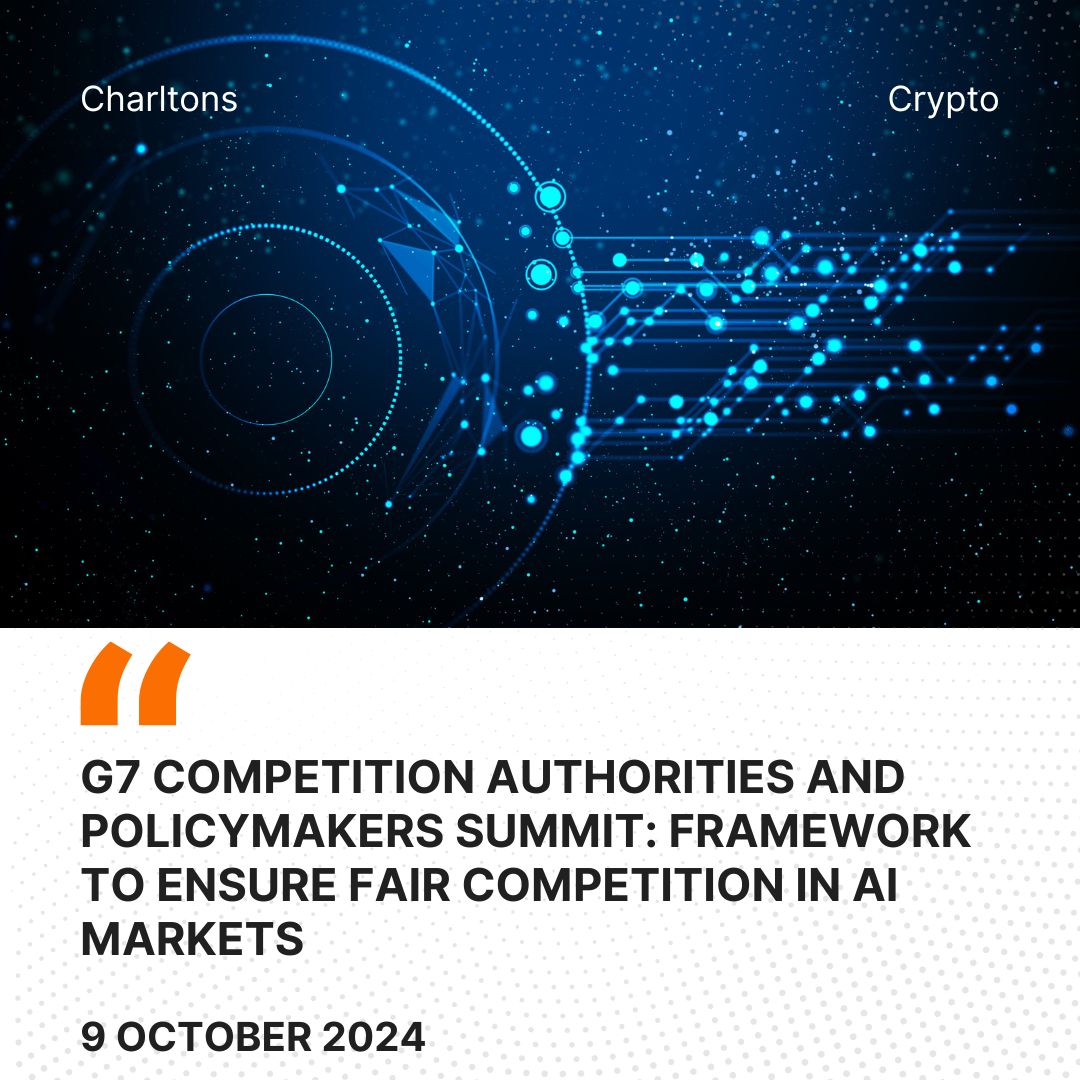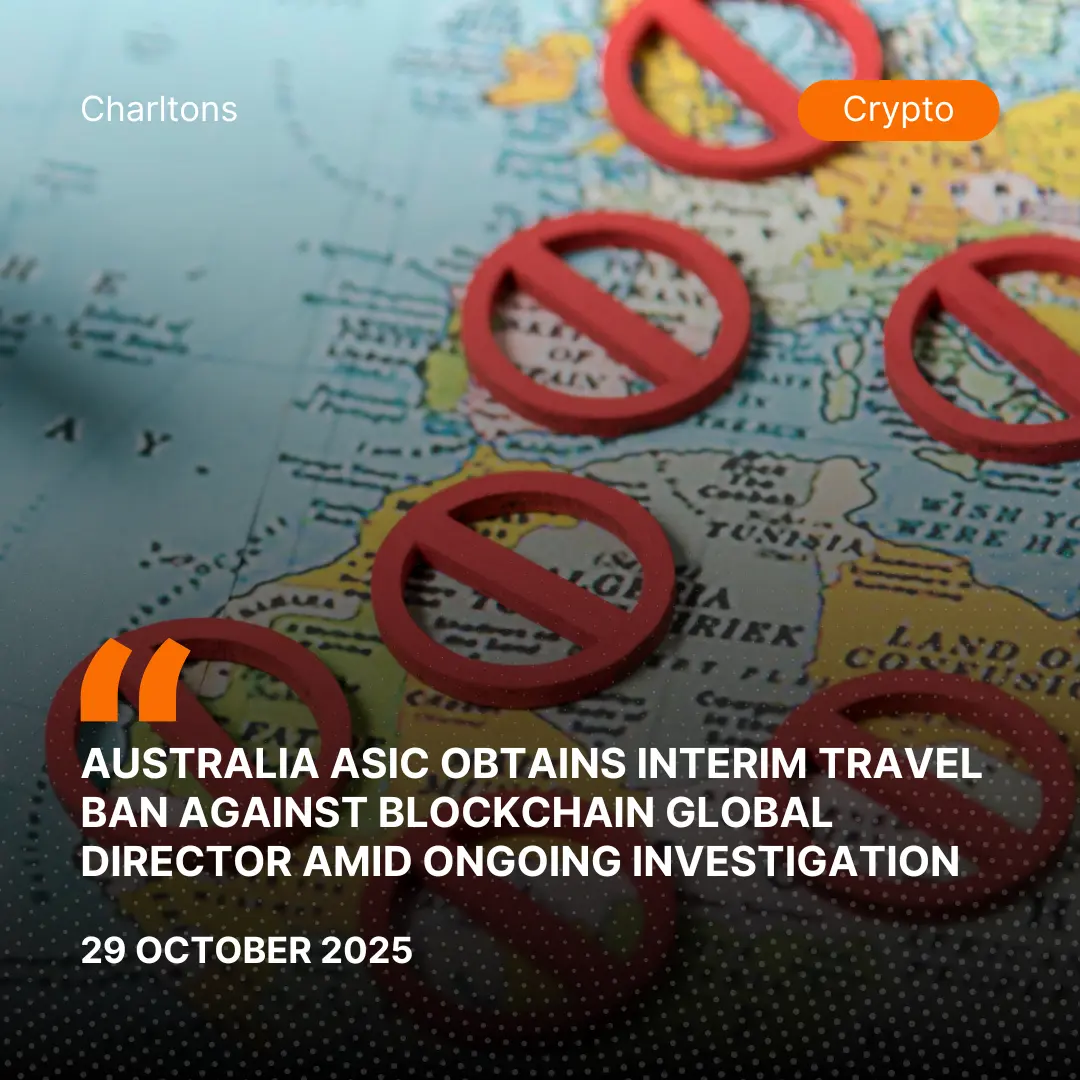
On 3 October 2024, the G7 Competition Authorities and Policymakers Summit met in Rome, Italy, to address the competitive challenges presented by the rapid advancement of artificial intelligence technologies, including Generative AI (GenAI). This gathering, hosted by the Italian Competition Authority, followed up on discussions initiated during the G7 Industry, Technology and Digital Ministerial Meeting in March 2024 and the Tokyo Summit in 2023. The discussions in Rome centered around ensuring that AI-driven innovations foster healthy competition while mitigating risks of market concentration and unfair practices. The US Justice Department’s Antitrust Division and the Federal Trade Commission participated in the summit.
The communiqué discusses the transformative potential of AI for economies and societies along with its ability to increase productivity and spur innovation across multiple sectors. However, the communiqué also stresses that to fully reap the benefits of AI, it is crucial to maintain open and contestable markets. The G7 participants voiced concerns that certain characteristics of AI markets, particularly in the development of GenAI, could lead to the concentration of market power, stifling innovation and competition. These concerns include the high costs associated with AI development, economies of scale that favor large players, and network effects that could entrench incumbents. The accumulation of proprietary data and the creation of data feedback loops could further exacerbate these issues, making it difficult for new entrants to compete.
The communiqué notes that the availability of critical inputs, such as computing infrastructure, specialized chips, and AI talent, is increasingly controlled by a small number of firms which could create bottlenecks, limiting access for new entrants and heightening competition concerns. The partnerships between large AI companies and incumbent digital platforms, many of which already hold substantial market power, also raise alarms about the potential for these incumbents to consolidate their dominance across both digital and AI markets.
Throughout the discussions, the participants agreed that dominant firms with significant influence in digital markets might use their power to extend control over AI markets. Practices such as self-preferencing, bundling, and leveraging network effects could restrict consumer choices and raise barriers to entry for smaller competitors. The risk of collusion using AI algorithms, whether through pricing coordination or the sharing of sensitive competitive information, was also flagged as a potential concern. Such practices could harm consumers by facilitating price fixing or surveillance pricing, ultimately undermining competition and trust in AI-driven markets.
The communiqué expands the scope of the competition issues into broader societal concerns. AI’s reliance on human-generated content, such as art, writing, and intellectual property, for its training raises questions about the protection of creators and the potential suppression of innovation in these areas. With a limited number of firms controlling the AI ecosystem, creators may be undercompensated, and new innovations could be stifled. Protecting consumer rights is another pressing issue, with the potential for AI-generated outputs to mislead or manipulate consumer decision-making. The sheer volume of data required for AI systems, coupled with concerns about privacy and data protection, reinforces the need for stringent compliance with existing rules and regulations to safeguard personal data and maintain public trust.
In response to these challenges, the communiqué outlines several guiding principles to ensure that AI markets remain open, fair, and conducive to innovation. It calls for proactive measures to prevent dominant digital platforms from exploiting their market positions and foreclosing competition by ensuring that AI chips and training data remain accessible to new to foster a competitive environment. Openness and interoperability are key tenets, with the belief that consumers, businesses, and innovation will benefit from systems that allow for flexibility, switching, and diversity of models in the AI marketplace. Transparency, both in terms of AI’s data usage and its limitations, is highlighted as essential for building trust among consumers and businesses. Authorities committed to remaining vigilant against anti-competitive practices, ensuring that AI technologies are developed and deployed responsibly and ethically.
The participants discussed the importance of enforcing competition laws with vigor and foresight, as AI markets are still in their early stages. By acting preemptively, competition authorities aim to prevent the entrenchment of market power and to ensure that competition remains robust as AI technologies continue to evolve. The need for tailored remedies that account for the specific dynamics of AI markets, such as network effects and data feedback loops, is acknowledged as essential to restoring competition when necessary.
The G7 competition authorities affirmed their intention to closely monitor market developments in AI and digital platforms, especially in relation to strategic partnerships and emerging market structures. Recognizing the rapid pace of technological change, they also underlined the importance of adaptive policies and regulations that keep pace with innovation while preserving the core principles of fair competition. Digital regulations and AI-specific frameworks are expected to complement traditional competition enforcement, with particular attention given to promoting access to key AI inputs, such as supercomputing capacity, which could alleviate some of the existing barriers to entry.
The communiqué also discusses the need for competition authorities to enhance their digital expertise, building the technological capabilities necessary to detect and address competition risks early. International cooperation was a recurring theme, with participants committing to sharing knowledge and best practices to stay ahead of the challenges posed by AI. The G7 members also discussed the importance of engaging with other international bodies, such as the OECD and the UN, to ensure that competition policy remains aligned with global developments in AI and digital markets.
As the G7 competition authorities look ahead to Canada’s presidency in 2025, they reestablished their commitment to ongoing collaboration and knowledge-sharing as the rapidly changing digital landscape requires continuous dialogue and proactive enforcement to safeguard open, fair, and competitive AI markets.
(Source: https://en.agcm.it/dotcmsdoc/pressrelease/G7%202024%20-%20Digital%20Competition%20Communiqu%C3%A9.pdf, https://www.justice.gov/opa/pr/justice-department-and-federal-trade-commission-meet-g7-enforcement-partners-rome-discuss)





